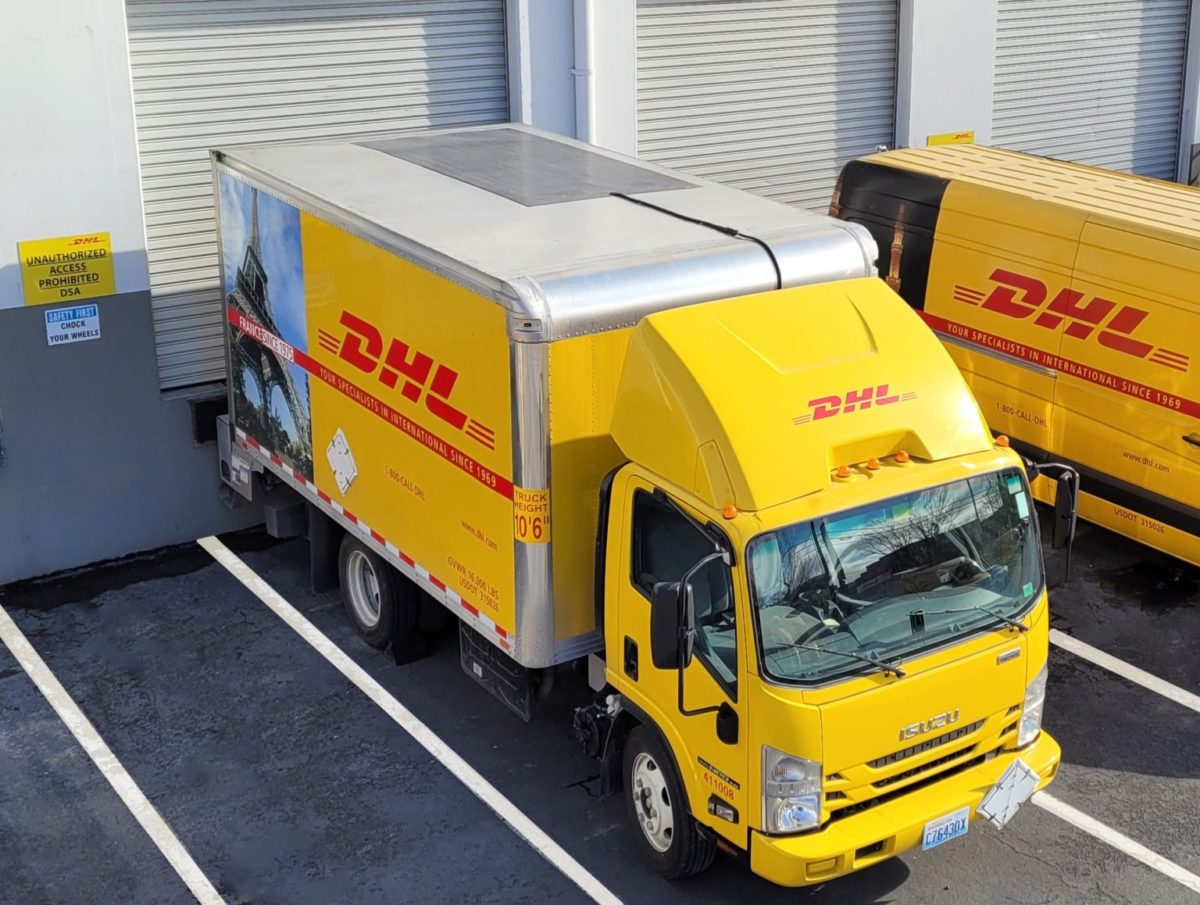From pv magazine USA
Shipper DHL Express has announced plans to deploy solar panels on 67 of its delivery trucks in an effort to cut fuel use and limit carbon emissions. The company said the TRAILAR solar arrays will reduce CO2 emissions by 1,000 kg per vehicle.
The solar array will be used to charge the truck’s battery, power lift gates and other ancillary services. This reduces load on the system’s alternator, reducing the fuel use of heavy-duty trucks.
“We’re aiming to improve the lives of people where they live and work, using cleaner pickup and delivery solutions – such as electric vehicles and cargo cycles, and now augmenting our truck fleet with this innovative solar solution,” said DHL Express US CEO Greg Hewitt. “This is another strategic step in our drive forward to decarbonization, and over time reducing all logistics related emissions to net zero by 2050.”
Transportation is believed to account for 21% of global emissions, and road travel accounts for three-quarters of all transport emissions. Most of this comes from passenger vehicles, which contribute 45.1%. About 29.4% comes from trucks carrying freight, so about 6.1% of global emissions share comes from ground shipping.
The TRAILAR system is equipped with telematics for detailed reporting on the entire system, including battery health, ancillary equipment charge, and overall fuel savings. It continuously manages the battery through a charge controller, maintaining optimum battery levels even when the truck is off. This constant care of charge level reduces wear on the battery and alternator, directly lowering vehicle maintenance costs.
The company said it has implemented the solution within many of its fleet operations at business units that operate in the Americas, Asia Pacific, Europe, Middle East and Africa.
Last May, the company announced an accelerated roadmap to decarbonize its operations, with an opex and capex investment of $7.8 billion over the next 10 years.
This content is protected by copyright and may not be reused. If you want to cooperate with us and would like to reuse some of our content, please contact: editors@pv-magazine.com.




2 comments
By submitting this form you agree to pv magazine using your data for the purposes of publishing your comment.
Your personal data will only be disclosed or otherwise transmitted to third parties for the purposes of spam filtering or if this is necessary for technical maintenance of the website. Any other transfer to third parties will not take place unless this is justified on the basis of applicable data protection regulations or if pv magazine is legally obliged to do so.
You may revoke this consent at any time with effect for the future, in which case your personal data will be deleted immediately. Otherwise, your data will be deleted if pv magazine has processed your request or the purpose of data storage is fulfilled.
Further information on data privacy can be found in our Data Protection Policy.